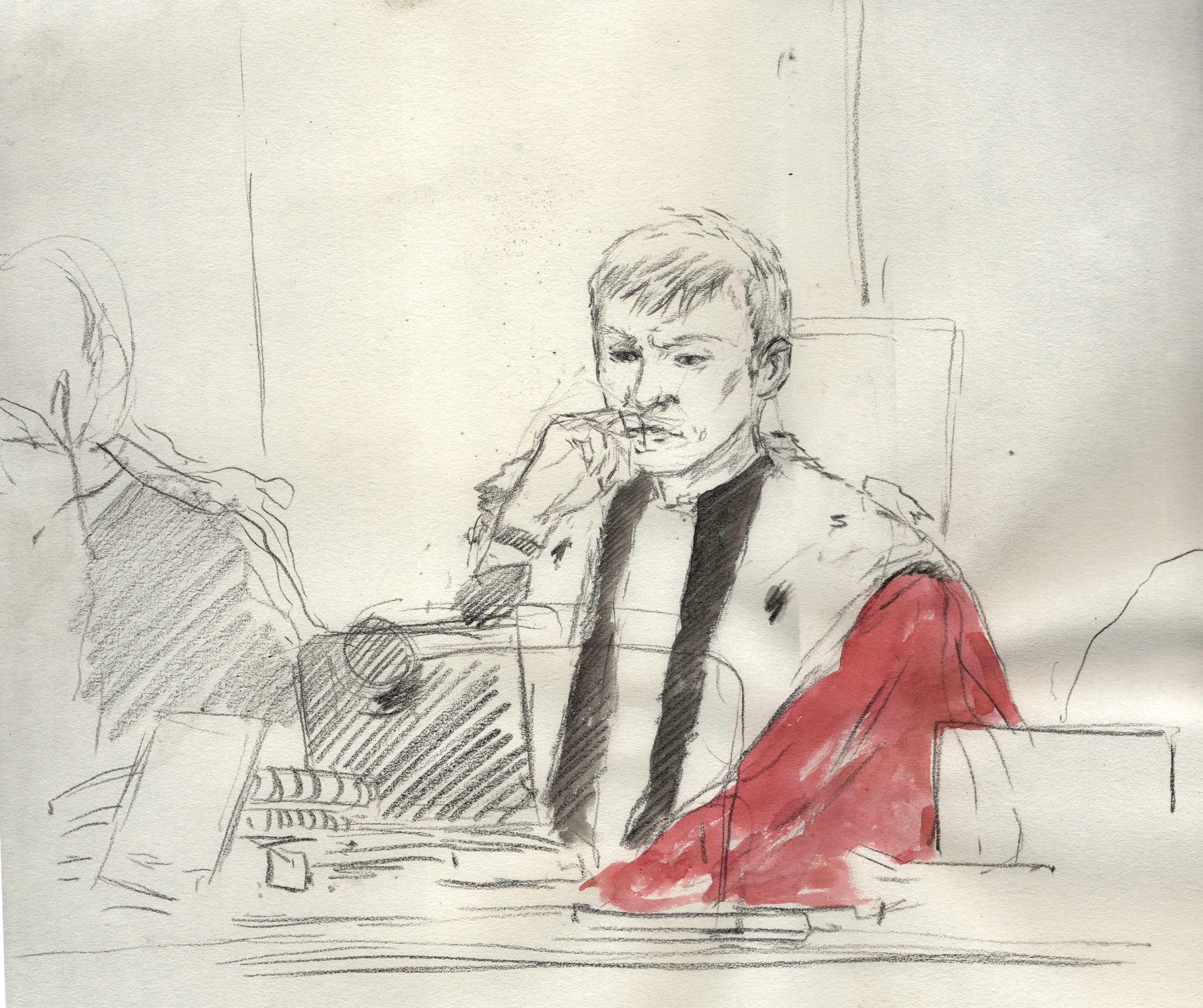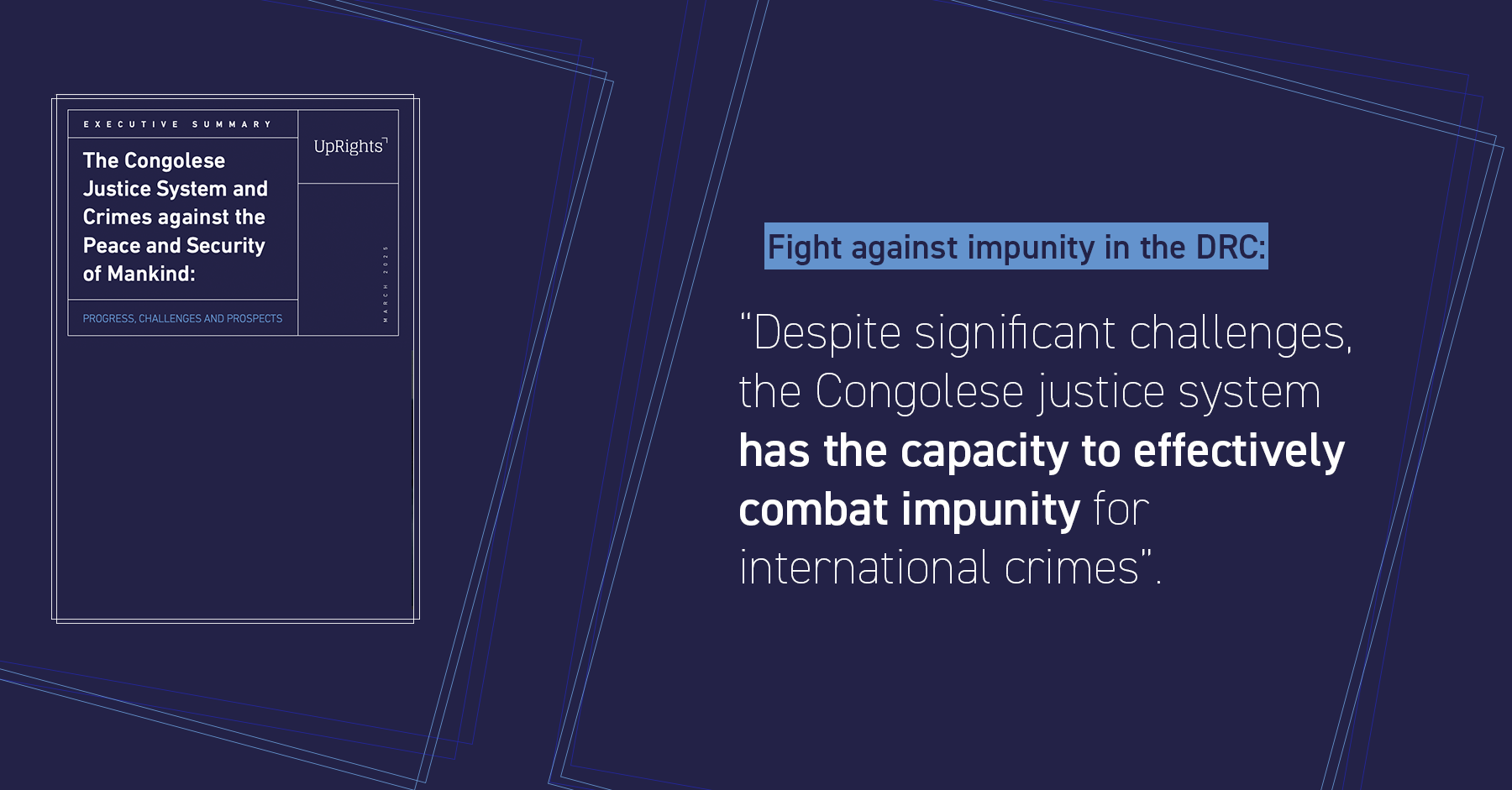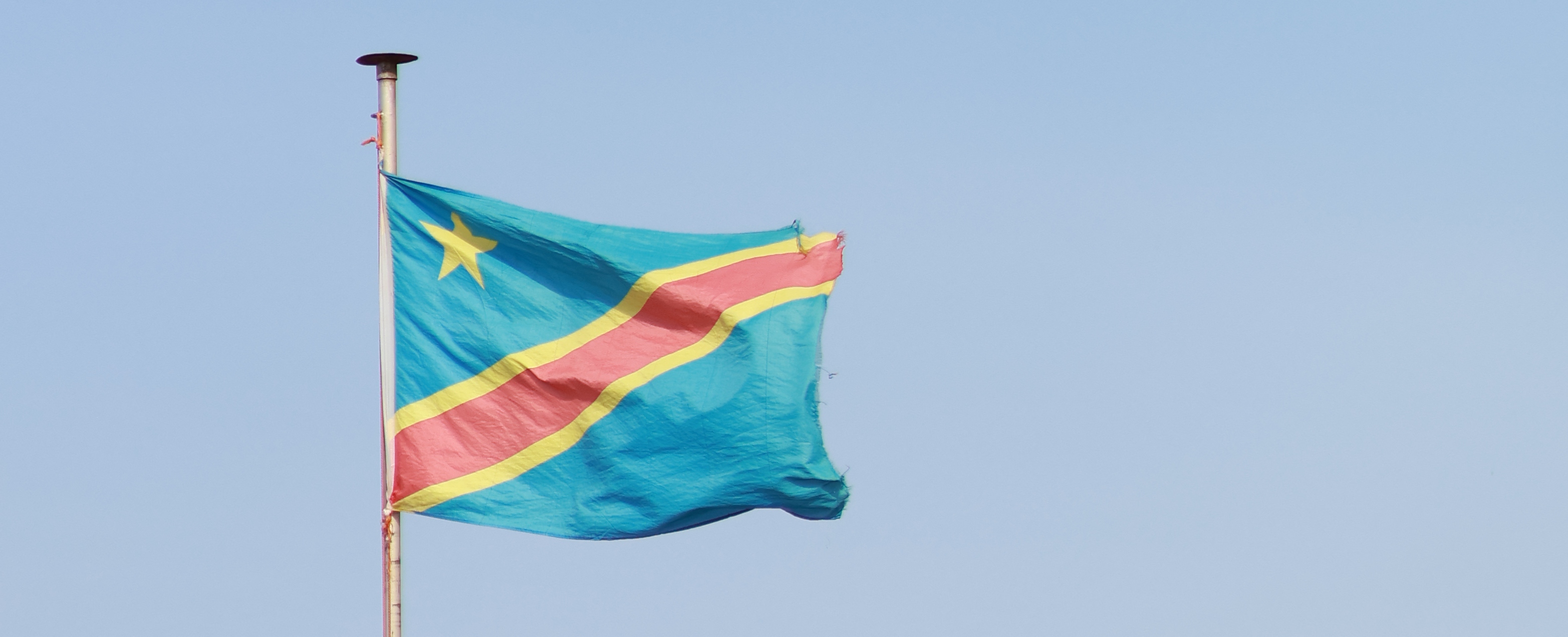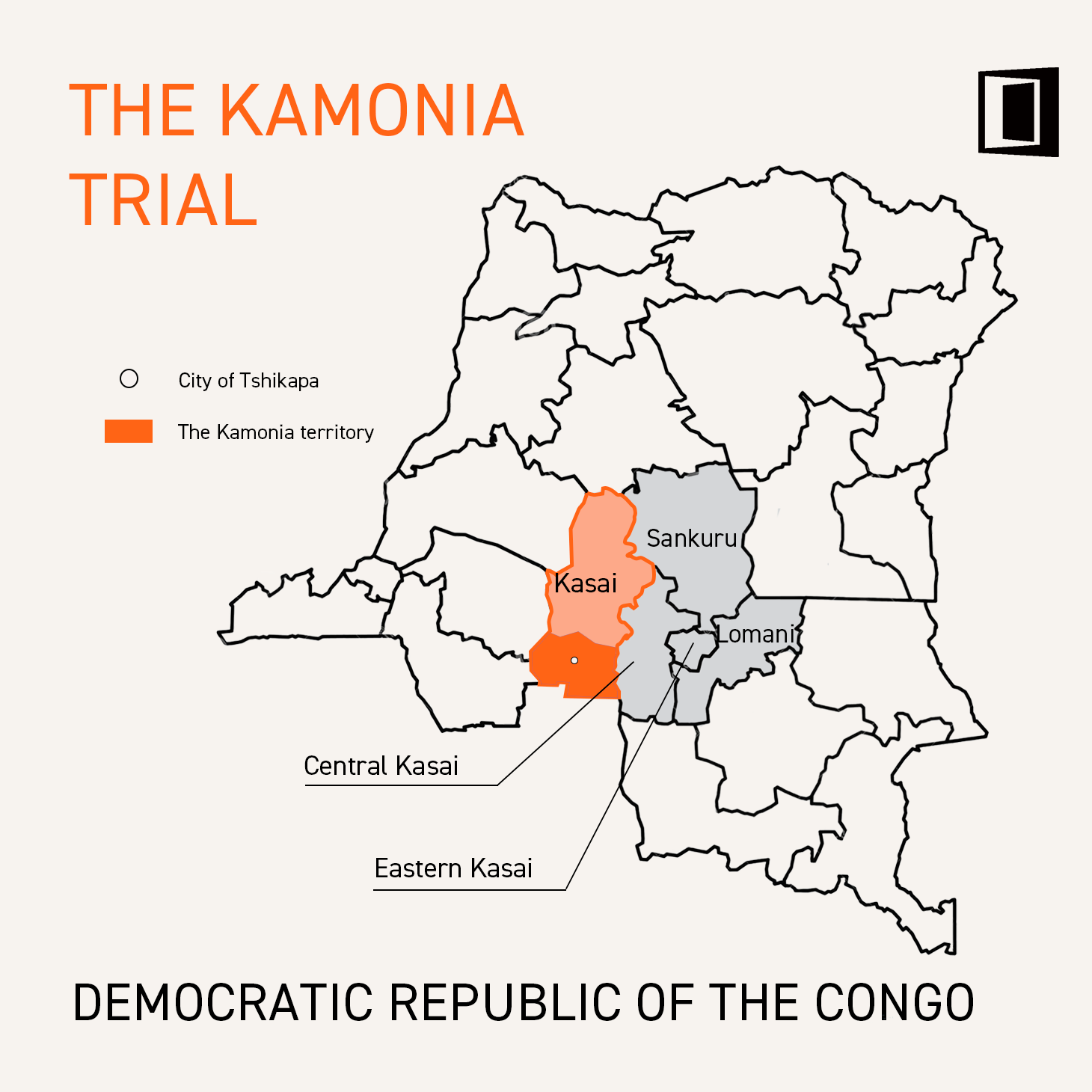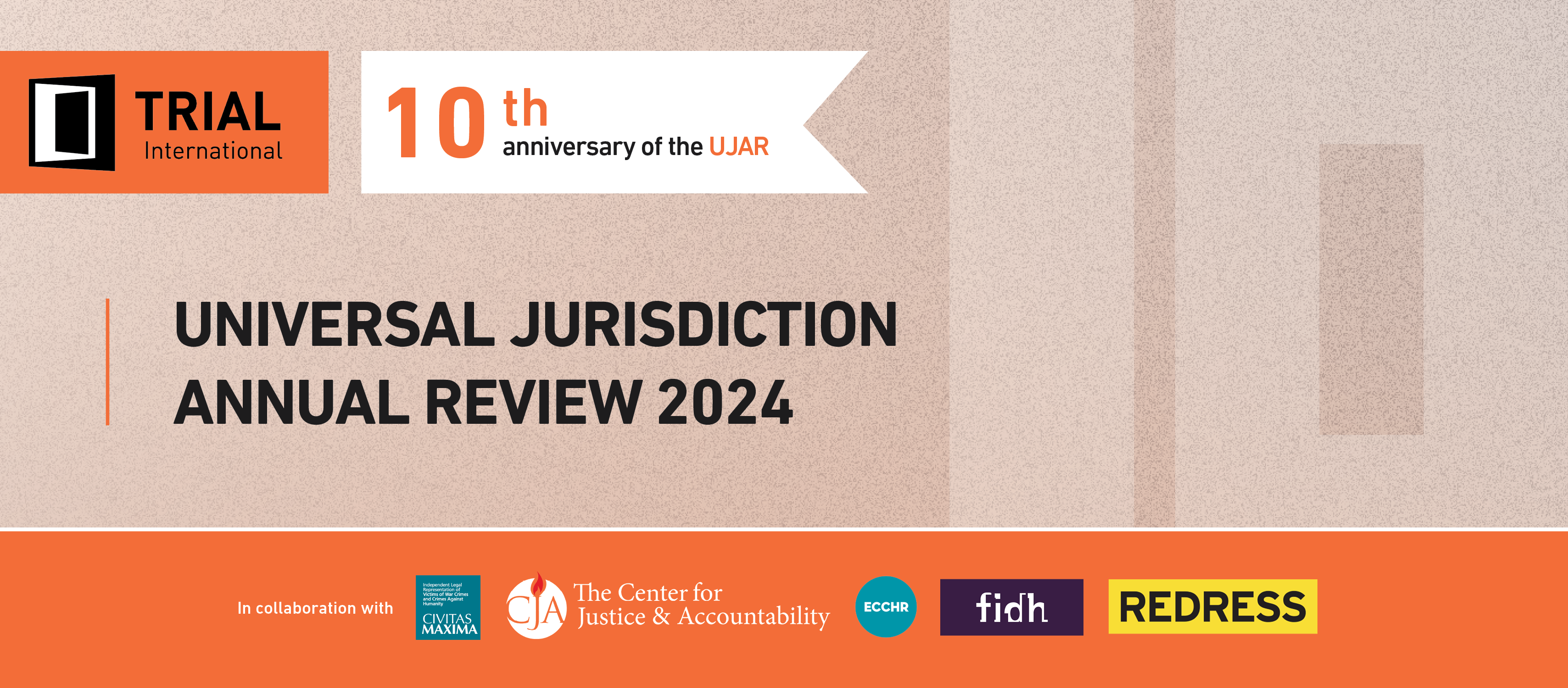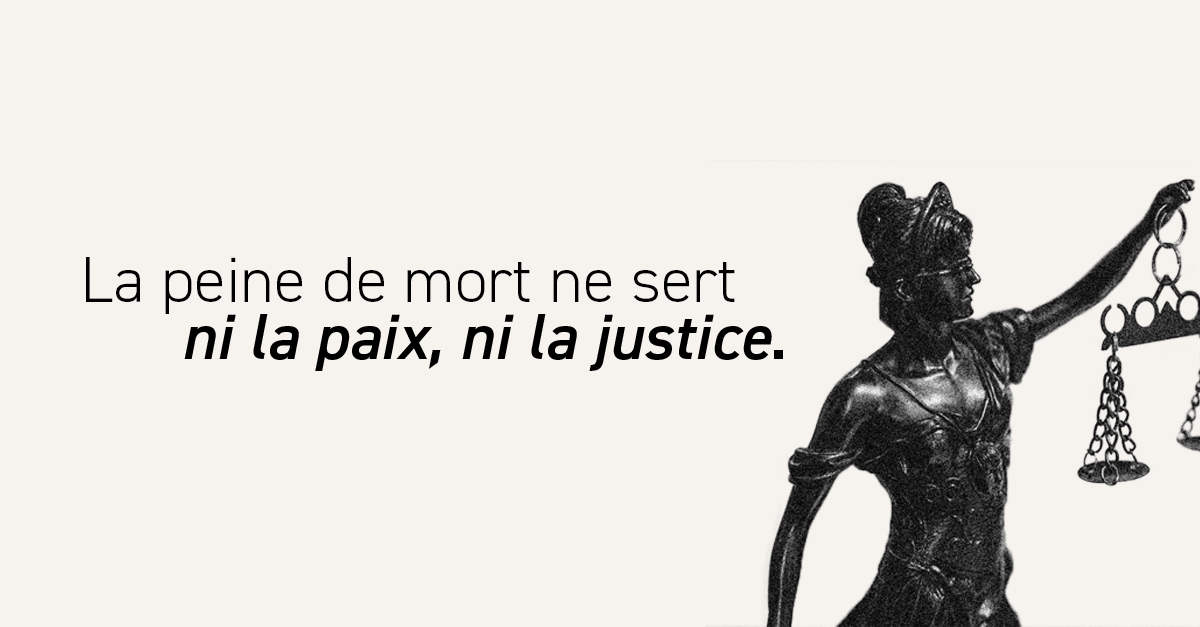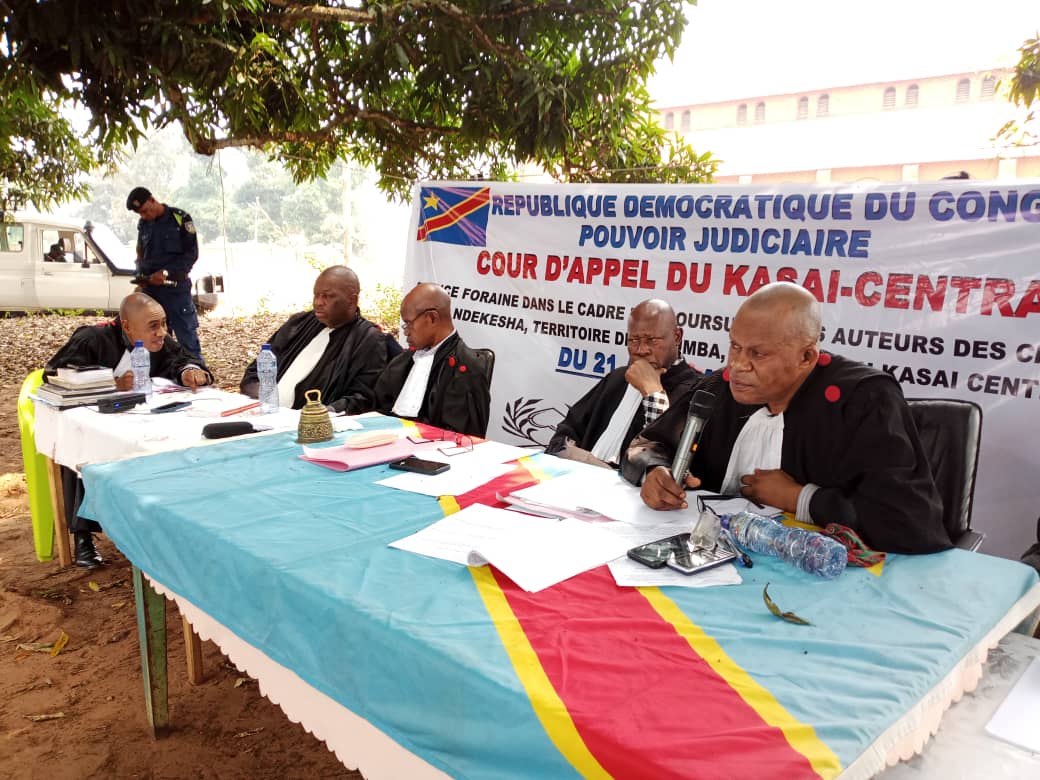1) Access to justice
TRIAL International offers free, high-quality legal and judicial assistance to victims of international crimes who wish to seek justice.
The organization applies survivor-centered consent procedures and the highest standards of confidentiality in the judicial proceedings undertaken, and adopts a holistic, multisectoral approach involving health services, psychosocial support, and the protection and security of victims. To this end, the organization works with professionals and health centers (e.g., the Panzi Hospital in Bukavu) as well as organizations specialized in the protection and security of victims and human rights defenders.
We are also a civil party in the upcoming Roger Lumbala case, alongside the Clooney Foundation for Justice, Minority Rights Group, Justice Plus and 35 individuals. This has allowed us to support the investigation by identifying and supporting Congolese communities, victims, and survivors who came forward to share their account with French judicial authorities.
2) Capacity building
TRIAL International provides practical training and case-based mentoring for lawyers, human rights defenders and civil society organizations, enhancing their capacity to document international crimes and to deliver effective legal assistance and support to victims.
Our support goes beyond training: we work continuously with partner NGOs to help plan and conduct documentation missions that enable the collection of solid evidence and the preparation of strong case files, facilitating effective investigations by prosecuting authorities.
We also assist lawyers handling international crime cases by providing methodological guidance and practical tools to develop and implement legal and judicial strategies tailored to the context and specificities of each case.
At the request of the Congolese High Council of the Judiciary (CSM), we also train magistrates and judges – including newly appointed ones – on the investigation and prosecution of international crimes, as part of our broader effort to build the long-term institutional capacity of the justice system.
Training includes, among other areas, the collection and analysis of evidence, the planning and conduct of documentation missions, and support to victims in their participation in judicial proceedings. It also focuses on the development of legal strategies and the drafting of various procedural documents required for trial.
3) Strategic Coordination and System Strengthening
TRIAL International fosters stronger coordination among justice actors to ensure that national and international efforts to combat impunity work hand in hand. We promote regular dialogue and collaboration between Congolese judicial institutions and their international partners to build a coherent, mutually reinforcing approach.
With MONUSCO’s gradual withdrawal, this coordinating role has become increasingly important. TRIAL International actively convenes and participates in joint workshops and strategic meetings to align priorities, share expertise, and strengthen national ownership of justice initiatives.
As part of these efforts, TRIAL International supports initiatives to develop national databases and records that document the actions of Congolese courts in prosecuting international crimes. By strengthening access to and analysis of national jurisprudence, we help build a clearer picture of how the justice system operates and promote evidence-based strategies to enhance accountability and institutional capacity.
4) Transitional justice
Since 2020, the Congolese government has committed to establishing a transitional justice process to address serious human rights violations committed across the country. While progress has been slow and uneven, key steps have been taken in recent years – including the creation of the a national fund for reparations for victims of sexual violence (FONAREV – Fonds National de Réparation des Victimes des violences sexuelles liées aux conflits et des crimes contre la paix et la sécurité de l’humanité) and, at the provincial level, a Truth, Justice and Reconciliation Commission (CPVJR – Commission provinciale Vérité, Justice et Réconciliation) in Kasaï-Central. More recently, draft laws have been introduced to establish new judicial institutions, such as a Special Criminal Court and specialized mixed chambers within the Congolese justice system.
TRIAL International actively supports these transitional justice efforts. We provide technical and strategic assistance to the CPVJR in Kasaï-Central, helping to operationalize its work on documenting violations and collecting victims’ testimonies. We also engage with and advocate before FONAREV to promote a victim-centered approach to reparations, grounded in clear criteria and transparent procedures.
In parallel, TRIAL International works closely with Congolese civil society organizations to strengthen their collective advocacy for effective legal and institutional reforms aimed at reinforcing the prosecution of international crimes. Through this engagement, we contribute to building a credible, inclusive, and sustainable transitional justice process that places victims at its core.
Consult our Universal Jurisdiction Interactive Map to keep informed on universal jurisdiction cases, including those that involve the DRC.

